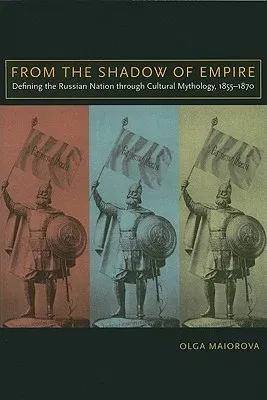As nationalism spread across nineteenth-century Europe, Russia's
national identity remained murky: there was no clear distinction between
the Russian nation and the expanding multiethnic empire that called
itself "Russian." When Tsar Alexander II's Great Reforms (1855-1870s)
allowed some freedom for public debate, Russian nationalist
intellectuals embarked on a major project--which they undertook in daily
press, popular historiography, and works of fiction--of finding the
Russian nation within the empire and rendering the empire in
nationalistic terms.
From the Shadow of Empire traces how these nationalist writers
refashioned key historical myths--the legend of the nation's spiritual
birth, the tale of the founding of Russia, stories of Cossack
independence--to portray the Russian people as the ruling nationality,
whose character would define the empire. In an effort to press the
government to alter its traditional imperial policies, writers from
across the political spectrum made the cult of military victories into
the dominant form of national myth-making: in the absence of popular
political participation, wars allowed for the people's involvement in
public affairs and conjured an image of unity between ruler and nation.
With their increasing reliance on the war metaphor, Reform-era thinkers
prepared the ground for the brutal Russification policies of the late
nineteenth century and contributed to the aggressive character of
twentieth-century Russian nationalism.

